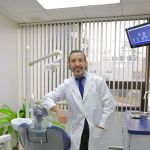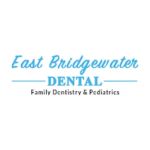Sleep Apnea Dental Devices for Better Breathing at Night
- 1. Understanding Sleep Apnea and Its Impact on Health
- 2. How Sleep Apnea Dental Devices Work
- 3. The Benefits of Using Sleep Apnea Dental Devices
- 4. Choosing the Right Sleep Apnea Dental Device
- 5. Real-Life Case Studies of Sleep Apnea Dental Devices







 Central Dental - Dentist Westchester NY4.0 (63 review)
Central Dental - Dentist Westchester NY4.0 (63 review) Aspen Dental - Oklahoma City, OK4.0 (618 review)
Aspen Dental - Oklahoma City, OK4.0 (618 review) Halifax Family Dental4.0 (307 review)
Halifax Family Dental4.0 (307 review) Center For Dental Sleep Health4.0 (2 review)
Center For Dental Sleep Health4.0 (2 review) East Bridgewater Dental4.0 (82 review)
East Bridgewater Dental4.0 (82 review) Picture Perfect Smile5.0 (418 review)
Picture Perfect Smile5.0 (418 review) The Importance of Oral Health Education During Pregnancy for a Healthy Pregnancy
The Importance of Oral Health Education During Pregnancy for a Healthy Pregnancy Best Tips for Brushing Your Teeth Properly for Healthy Gums: Essential Techniques for Oral Health
Best Tips for Brushing Your Teeth Properly for Healthy Gums: Essential Techniques for Oral Health Why Skipping Dental Checkups Can Lead to Bigger Oral Health Problems
Why Skipping Dental Checkups Can Lead to Bigger Oral Health Problems Advantages of Porcelain Dental Restorations
Advantages of Porcelain Dental Restorations How Can Diabetes Cause Tooth and Gum Problems? Preventing and Managing Oral Health Issues
How Can Diabetes Cause Tooth and Gum Problems? Preventing and Managing Oral Health Issues Healthy Habits for Promoting Good Oral Health and Hygiene: Tips for a Healthy Smile
Healthy Habits for Promoting Good Oral Health and Hygiene: Tips for a Healthy Smile